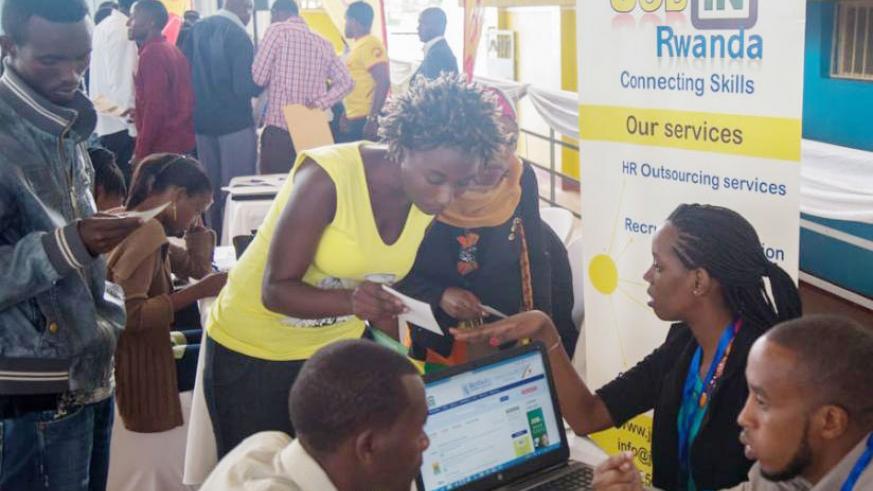Rwanda’s overall spending will increase by 16 per cent in 2018/19 to $2.87 billion, as the government moves to promote industries and improve the standard of living.
Finance and Planning Minister Uzziel Ndagijimana on Thursday proposed measures to promote investment in agriculture, tourism, infrastructure development and mining, which are expected to help grow the economy to 7.2 per cent in 2018, from 6.1 per cent last year.
Dr Ndagijimana said the lion’s share of the budget (57 per cent) has been allocated to economic transformation, which involves job creation and infrastructure development.
The cluster was allocated Rwf1,389.5 billion ($1.5 billion) to promote employment, urbanisation, industrialisation, exports, infrastructure development, trade, and to increase agriculture and livestock production and quality.
He proposed Rwf46.7 ($52.8 million) for the National Employment Programme (NEP) seeking to create 216,717 jobs in the 2018/19 fiscal year.
The government has also set an ambitious target to finance 67 per cent of its budget, with total domestic revenues estimated at $1.88 billion, reflecting an increase of $266.2 million, compared with $1.62 billion in the 2017/18 budget.
Domestic revenues are largely expected to be boosted by higher economic growth projections as well as enforcement of tax compliance and improving the efficiency of Rwanda Revenue Authority, which recently introduced electronic billing machines.
Kigali’s net borrowing is set to increase by from $204 million in the 2017/18 budget to $217.7 million in 2018/19.
This is mainly for infrastructure projects including building new Bugesera Airport, the government’s key strategic investments in aviation including expanding the RwandAir fleet, and making the newly formed Air Transport Ltd Company fully operational.
Moving to reduce transport costs and tap into regional markets, he proposed $264 million to the transport sector. Part of this will be invested in Akagera River’s navigability, a project which is set to provide the country with a waterway linking it to Lake Victoria.
Analysts say the lower energy consumption and less maintenance of the water transport infrastructure makes it the cheapest mode of transport compared with rail, air and road.
The river is Rwanda’s shortest water transport link to Lake Victoria and is where some of its imports and exports are expected to be landing. This link is important to Rwanda as the country seeks to reduce freight costs, which make its goods uncompetitive.
Rwanda is also developing ports on Lake Kivu and plans to buy boats to link it to DR Congo, the biggest regional export market.
Low hanging fruit
Agriculture which contributes 31 per cent of Rwanda’s GDP and employs over 80 per cent was another top priority. The sector was allocated Rwf124.7 billion ($140.4 million).
Dr Ndagijimana said the money will be used to increase production, productivity and reduce post-harvest losses.
“The growth targets for the next three years are definitely feasible given policies in place and the boost from airport construction and increased mining. Industry is improving rapidly but there will be challenges in textiles going forward because the low hanging fruit has been picked,” said Thomas Alun, IMF resident representative for Rwanda.
Taxes on used clothes used by the majority of households because they are affordable will increase to $4/kg for imports up from $2.5/kg.
Second-hand shoe dealers will now pay $5/kg of import up from $0.4/kg.
However, taxes on imported rice were slashed to 45 per cent from 70 per cent while customs tax on imported sugar went down to 25 per cent from 100 per cent. – The East African




